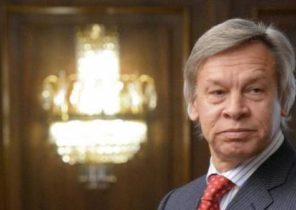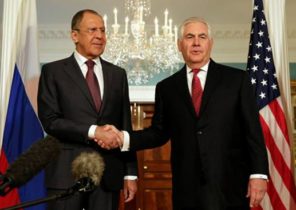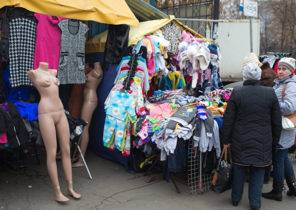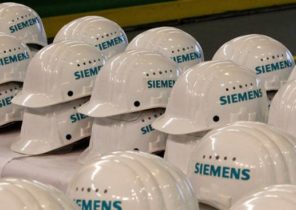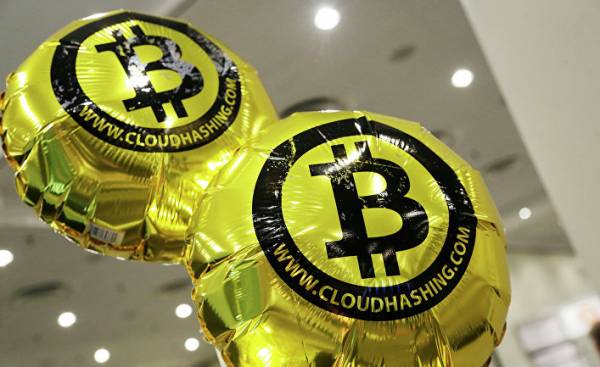
Russian President Vladimir Putin and his economic team have long understood that in order to liberate the country from dependence on oil, they need to make the leap to a certain technological area, which have not yet established the dominance of Western, Chinese or Japanese tech giants. Their last hopes rest with Ethereum platform based on blockchain technology.
At the recent St. Petersburg international economic forum Putin spoke with Vitalik Baleriny (Vitalik Buterin), a founder of the Ethereum platform. Baterina family emigrated from Russia to Canada when he was six years old. There is this mathematical genius, while still a teenager, became interested in bitcoins. Received from the Fund Peter Thiel (Peter Thiel”s foundation) scholarship in the amount of 100 thousand dollars allowed him to run the Ethereum project.
Although the platform Baterina and uses its own cryptocurrency, jumped in price from 8 to 260 dollars this year, the project is much more ambitious. Buterin considering it as a reliable tool for a variety of transactions that can be confirmed through the distribution system in the same way as is happening with bitcoin. It can be the bets option transactions, contracts in the field of insurance, government registration of rights of ownership and copyright we are talking about a fairly large number of operations that require validation or which may be automatically implemented subject to certain conditions. The platform provides a universal Ethereum blockchain, on the basis of which can be generated in various projects.
Russia has brilliant engineering minds, and she might be trying to lure back to the country of such talented Russian as Buterin, as well as those who work in Silicon valley. However, it is not so easy to find areas of “blue ocean”, not filled in such international shark as Apple, Google or Alibaba. In the past decade, Russian leaders made technological rates have suffered from the fact that it was too bold or too retarded from other competitors.
In 2007, Putin decided that it will be nanotechnology. In typical style he organized a giant state venture to develop this technology and put it at the head of the former head of the presidential administration, Anatoly Chubais, who is considered one of the best managers in the country. However, this plan didn’t work.
“Rosnano”, as it is now called the Corporation, had trouble finding the best, from the point of view of financing projects, and those in which it has invested have failed to provide the breakthrough that could accelerate the forward movement of the Russian economy. Last year revenues of RUSNANO declined sharply, and the losses amounted to 17.4 billion rubles ($307 million).
During the interim presidency of Dmitry Medvedev, the Kremlin tried to use another way and tried to dive along with sharks. He made a feeble attempt at creating a clone of Silicon valley near Moscow in partnership with global technology companies and the Massachusetts Institute of technology. Oligarchs and state companies were forced to invest their funds. Although the SKOLKOVO project continues to exist, as associated with it’s ambitious plans, it is not justified, because it attracts more attention from the Russian law enforcement authorities than on the part of innovators and private investors.
The search for promising ambitious projects resumed, when Putin became President again. Last year he came to the conclusion that Russia is able to implement the idea hyperpoetry Elon musk. Ultimately, the vast expanses of Russia involve the use of solutions such as hyperpaths. At the St. Petersburg international economic forum in 2016, Putin promised to support a company called Hyperloop One, and, in fact, associated with the Kremlin investors soon declared its willingness to Finance this startup.
Then had problems on the background exchange of harsh accusations between the co-founder of the Sherwin pichavaram a (Shervin Pishevar) and a former employee of the technology Department Babagana Brogan (Brogan BamBrogan). This company still exists and offers projects in many countries, but Russia, it seems, is not among the priorities of the American company, in spite of Russian investments.
Recently, the Ethereum platform has become an arena for the rapid growth of capital investment through the sale of digital tokens that can be used in certain programs, including the Gnosis prediction market, and thus managed to obtain 12 million dollars in 15 minutes.
Although the large global companies were there first — in the firm Enterprise Ethereum Alliance formed to promote technologies in various business environments, are already involved UBS, JP Morgan, Microsoft, Intel and other giants, Russia has the opportunity to be ahead of others.
Like other Central banks, the Central Bank of the Russian Federation is experiencing blockchain technology last year to conduct the first transaction using the Ethereum platform was formed by a consortium of major Russian banks. With the support of Putin — and this determines everything in today’s Russia — the Central Bank, managed by a protege of Putin, Elvira Nabiullina, has the ability to more aggressively move the country’s financial sector in the direction of the blockchain.
Buterin also offered a platform for a broad Russian public sector, while stressing its anti-corruption potential — this system is transparent in nature. I’m not sure that the representatives of the Putin elite is delighted about this aspect of the platform the blockchain, however, Putin himself probably interested in the possibilities resulting greater control. A short meeting with Putin Baleriny last week, apparently, opens exciting prospects for the latter. A huge country, where he was born, is the most promising field to conduct controlled experiments, which are passionate about new technologies people can only dream of. Inside Putin’s system decisions can be made quickly, and mistakes can be forgiven in the name of the great leap forward Russia.
I doubt that Putin will ever have the courage to give 23-year-old Buterin complete freedom of action in the restructuring of the Russian financial system or a large-scale bureaucracy. However, Russia, stuck in the twentieth century, both politically and economically, it is necessary to make this jump to remain important country. Huge-scale experiment may be just one more wrong turn — but it is more likely that he will give the country a powerful impetus to modernization.
